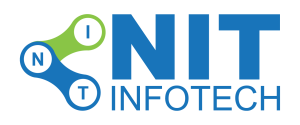Git is a distributed version control system designed to handle everything from small to very large projects with speed and efficiency. Created by Linus Torvalds in 2005, Git allows multiple developers to work on a project simultaneously without overwriting each other’s changes. It tracks changes in source code, enabling collaboration, history tracking, and easy branching and merging. Git’s decentralized nature means each developer has a full copy of the repository, enhancing reliability and offline capabilities. It is widely used in software development for its robust feature set and is the backbone of many collaboration platforms like GitHub and GitLab.
45 Essential GIT Interview Questions and Answers for 2024
Get ready for your GIT interview questions with these top 45 questions and answers for 2024. Master essential GIT concepts, commands, and workflows.
How to Switch Git Branches: A Step-by-Step Guide
Learn how to Switch Git Branches. Follow our step-by-step guide for using 'git checkout' and 'git switch' commands.
GitHub Tutorial for Beginners: A Comprehensive Guide to Getting Started with Version Control
Learn GitHub basics with our comprehensive tutorial. Start version control, collaboration, and project management with ease. Get started now!
Git vs GitHub: Understanding the Key Differences
Discover the differences between Git vs GitHub. Learn how Git's version control compares to GitHub's collaboration platform for effective project management.
Basic Git Commands: A Comprehensive Guide for Beginners
Learn essential Git commands for version control, including clone, commit, branch, merge, push, and more. Perfect for beginners to get started with Git.
Beginner’s Guide to Git: Managing Your Code with Version Control
Learn Git basics: installation, setup, repository creation, committing changes, branching, merging, collaboration. Essential for all developers.

